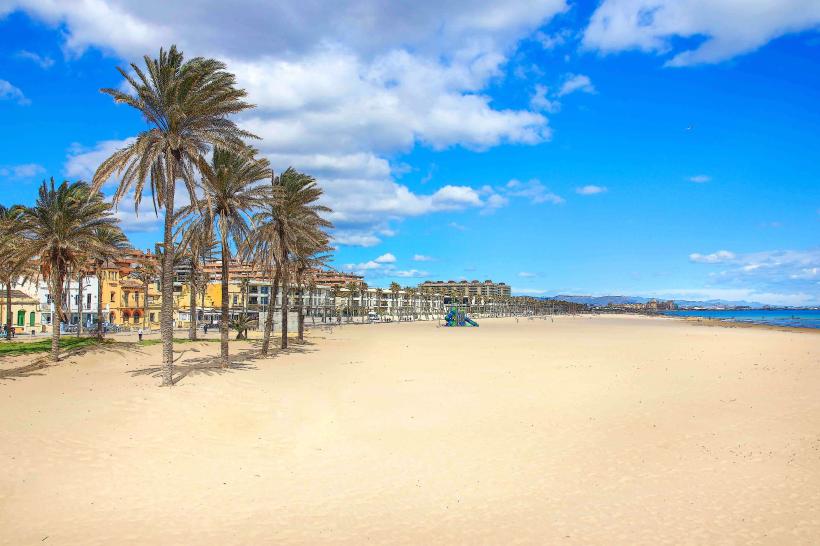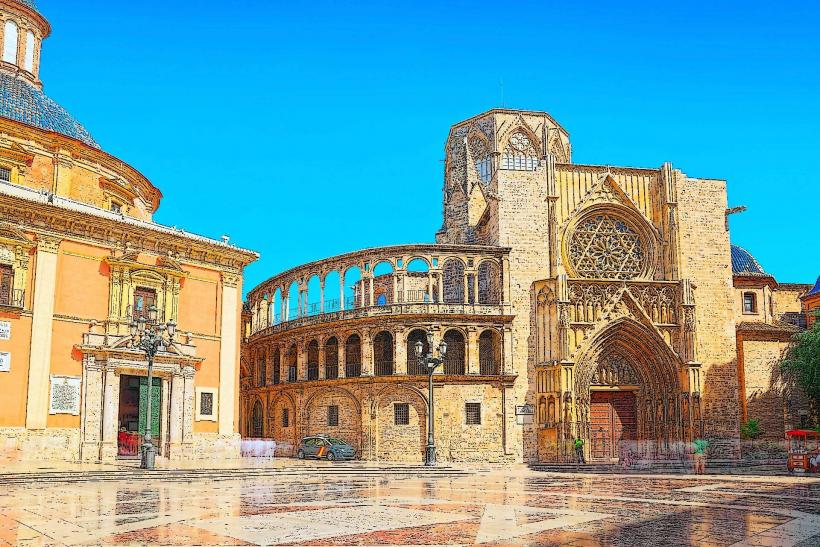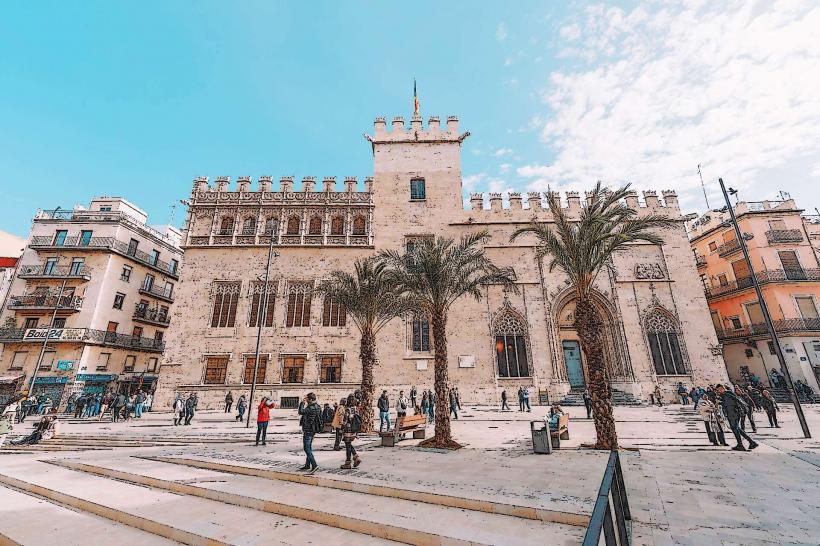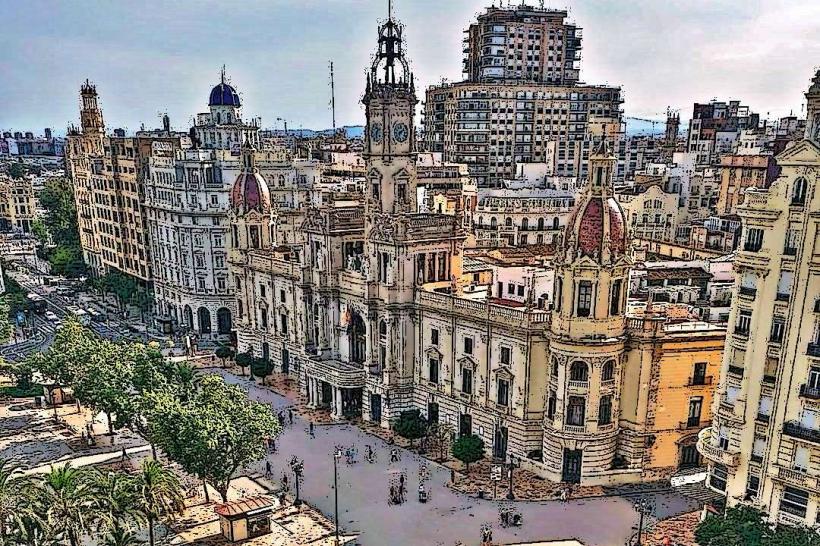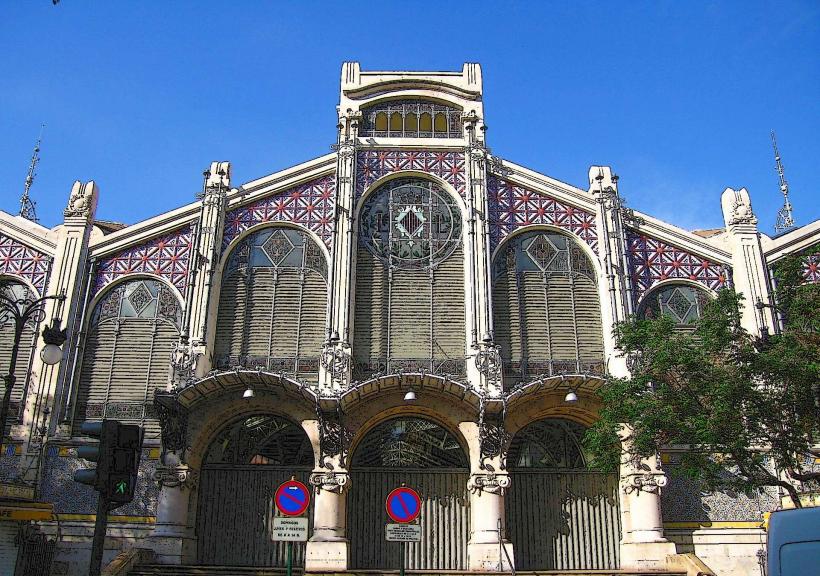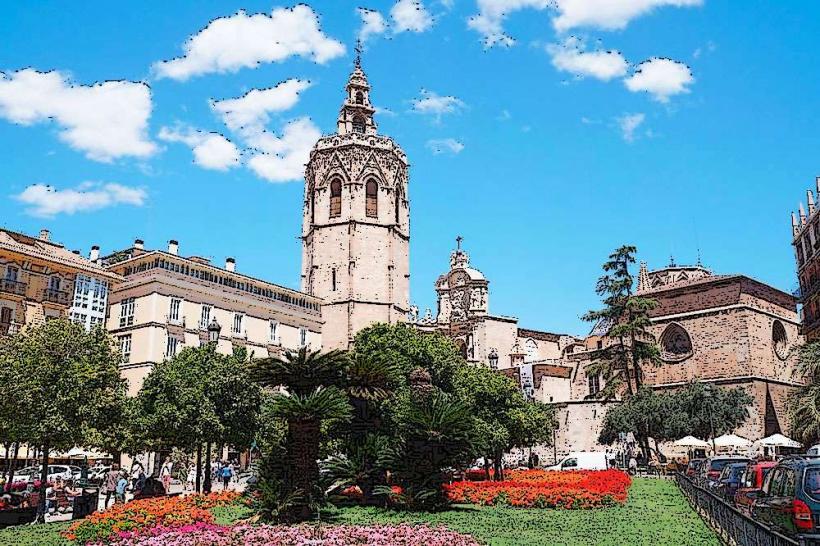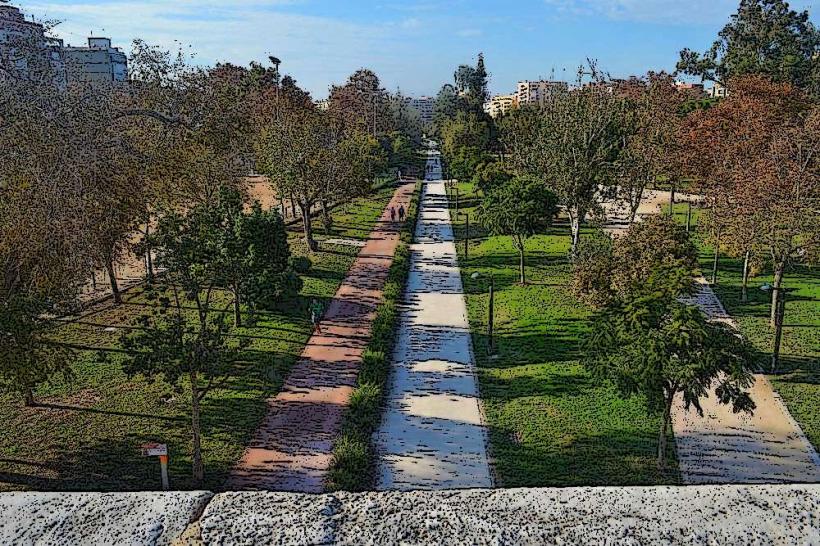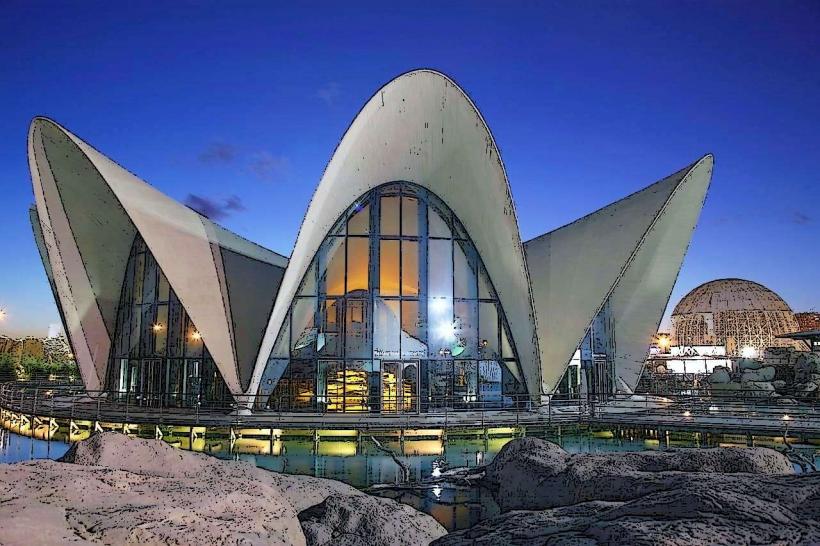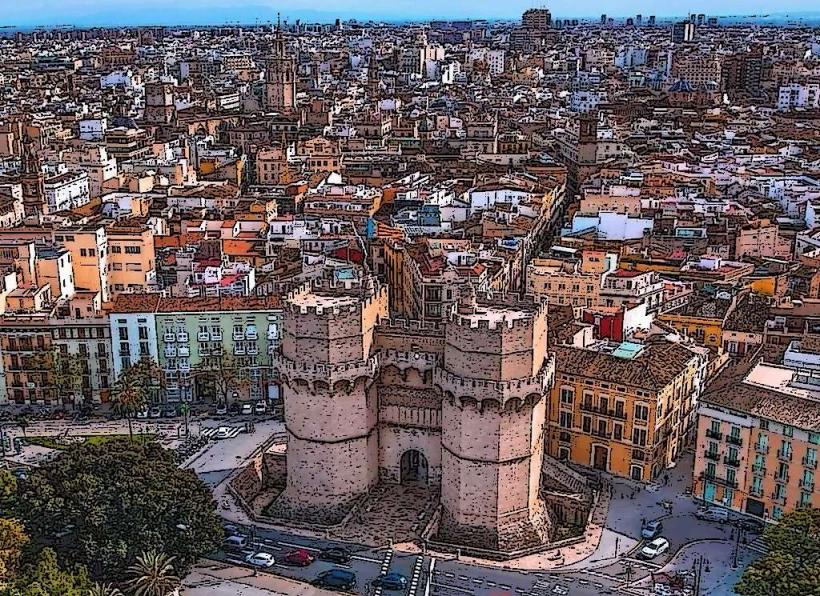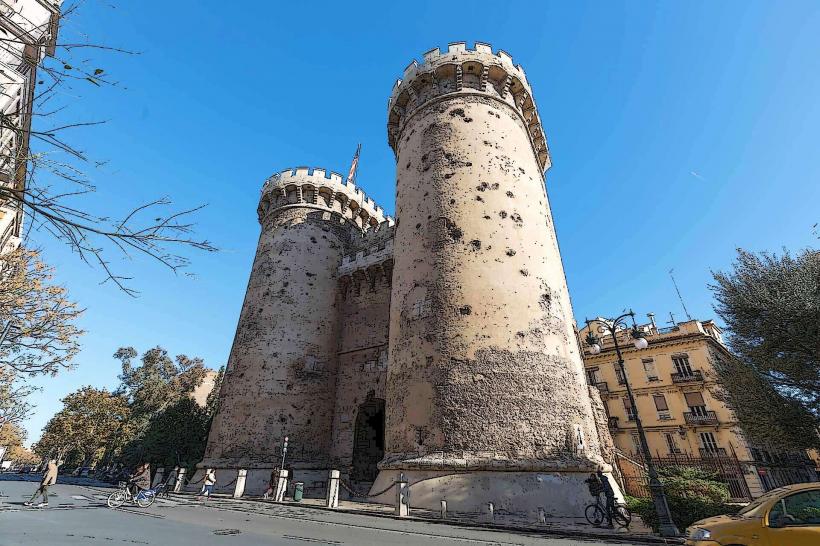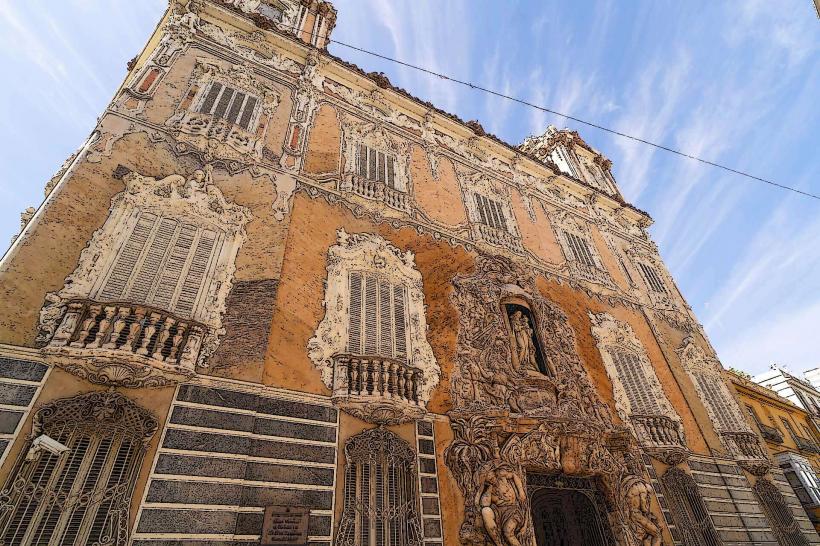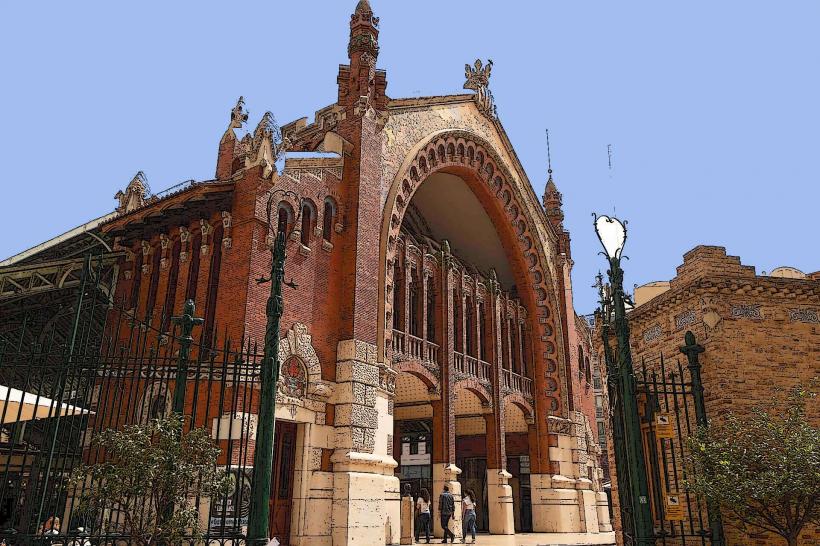Information
Landmark: City of Arts and SciencesCity: Valencia
Country: Spain
Continent: Europe
City of Arts and Sciences, Valencia, Spain, Europe
The City of Arts and Sciences (Ciudad de las Artes y las Ciencias) is a state-of-the-art architectural and cultural complex in Valencia, Spain. Designed primarily by Santiago Calatrava and Félix Candela, it occupies the former riverbed of the Turia River.
Visual Characteristics
The complex is defined by futuristic, white organic structures set within extensive turquoise shallow pools. The architecture utilizes skeletal forms, tilled mosaics (trencadís), and glass-and-steel facades. Key structures include the eye-shaped Hemisfèric, the whale-skeleton-inspired Science Museum, and the lily-shaped Oceanogràfic.
Location & Access Logistics
The site is located at the eastern end of the Turia Garden, near the port.
Transit: Accessible via Metro Line 10 (Ciutat Arts i Ciències-Justícia station). Multiple bus lines (13, 15, 24, 25, 35, 95, 99) serve the perimeter.
Entry: Access to the exterior plazas and pools is free. Individual or combined tickets are required for the museums, cinema, and aquarium.
Parking: A large underground parking facility is available beneath the Umbracle.
Key Highlights & Activities
L'Oceanogràfic: The largest aquarium in Europe, featuring various marine ecosystems.
Museu de les Ciències Príncipe Felipe: An interactive science museum focused on technology and biology.
L'Hemisfèric: An IMAX cinema, planetarium, and laserium housed in an "eye" structure.
Palau de les Arts Reina Sofía: An opera house and performing arts center.
L'Umbracle: A landscaped walk and viewpoint featuring plant species indigenous to Valencia and an outdoor art gallery.
The Ágora: A versatile space used for concerts and sporting events.
Infrastructure & Amenities
The complex includes multiple dining facilities, from casual cafes to high-end restaurants like Submarino. Public restrooms are located within each building. 5G/4G cellular coverage is excellent throughout the open-air and indoor areas.
Best Time to Visit
Photography is optimal during the "blue hour" after sunset when the white structures are illuminated and reflected in the pools. For interiors, morning slots (10:00) are recommended to avoid large school groups.
Nearby Landmarks
Turia Garden (Jardín del Turia): 0.1km West.
Palau de la Música de València: 1.2km West.
El Saler Shopping Centre: 0.4km South.
Gulliver Park: 0.8km West.
Valencia Port: 2.0km East.

